How Did Enlightenment Thinkers Draw Conclusions
How Did Enlightenment Thinkers Draw Conclusions - Enlightenment thinkers had a long history of earlier writings on colonialism on which they could, and did, draw. Web 10 key enlightenment thinkers having set the foundation, then, a new wave of thinkers set about building a new edifice of western knowledge. They said, people may perceive things differently, but through science they can all come to the same objective knowledge. did any enlightenment thinker of significance conclude: It was centered around the idea that reason is the primary source of authority and legitimacy, and it advocated such ideals as liberty, progress, tolerance, fraternity, constitutional government, and separation of church and state. Web enlightenment science and technology sought to open up to scrutiny and harness the power of all aspects of the natural world, while landscape painters and garden designers attempted to prune, beautify and frame nature in ways. Web by applying reason, the mind could trace the sensations and draw conclusions from them. Philosophes during the enlightenment such as voltaire advocated for freedom of speech, religion, and the separation of the church and state. Web expressing convictions shared among enlightenment thinkers of widely divergent doctrines, kant identifies enlightenment with the process of undertaking to think for oneself, to employ and rely on one’s own intellectual capacities in determining what to believe and how to act. Web enlightenment thinkers similarly called for a separation of church and state—the idea that government should not interfere in religious affairs, and vice versa. Web ultimately, both inductive and deductive reasoning influenced the intellectual context of the enlightenment by providing two systematic means of drawing conclusions about the natural world from observations and evidence. Montesquieu favored the separation of powers. Influential figures like bacon and locke saw deduction from systematic observations as key to understanding the world. Disagreeing just as often they agreed with each other, all of the thinkers had the common objective of finding a better world to live in. Web enlightenment, a european intellectual movement of the 17th and 18th centuries. How did enlightenment thought impact production and distribution? Web what views did enlightenment thinkers have about progress? Web enlightenment thinkers proposed that the knowledge needed to improve social conditions could be gathered through rationalism, which regards reason as the source of most knowledge, and empiricism, which relies upon the evidence provided by experiments. The ideas of locke and hobbes and. Philosophes during the enlightenment such as voltaire advocated for freedom of speech, religion, and the separation of the church and state. Montesquieu favored the separation of powers. Web 10 key enlightenment thinkers having set the foundation, then, a new wave of thinkers set about building a new edifice of western knowledge. Web as attention was turned from the realities of. The ideas of locke and hobbes and the notion of the social contract challenged traditional thinking and also contributed to the enlightenment. What are the key concepts of. The enlightenment was a philosophical movement that dominated in europe during the 18th century. Many consider the enlightenment a major turning point in western civilization, an age of light replacing. Web as. Web 10 key enlightenment thinkers having set the foundation, then, a new wave of thinkers set about building a new edifice of western knowledge. Web art images via getty images. Influential figures like bacon and locke saw deduction from systematic observations as key to understanding the world. The conclusion discusses the contemporary relevance of enlightenment ideas, addressing especially issues related. Many consider the enlightenment a major turning point in western civilization, an age of light replacing. Web enlightenment writers often filtered their ideas about colonialism through their experiences with it, past and present. Philosophes during the enlightenment such as voltaire advocated for freedom of speech, religion, and the separation of the church and state. Given perceptual relativism, what's true for. Web there were a number of precursors to the enlightenment. Web 10 key enlightenment thinkers having set the foundation, then, a new wave of thinkers set about building a new edifice of western knowledge. Web enlightenment thinkers proposed that the knowledge needed to improve social conditions could be gathered through rationalism, which regards reason as the source of most knowledge,. Web enlightenment thinkers relied on science and observation, using empirical methods and the scientific method to question traditional beliefs and recognize patterns and connections. Web 10 key enlightenment thinkers having set the foundation, then, a new wave of thinkers set about building a new edifice of western knowledge. They said, people may perceive things differently, but through science they can. Many consider the enlightenment a major turning point in western civilization, an age of light replacing. Web enlightenment science and technology sought to open up to scrutiny and harness the power of all aspects of the natural world, while landscape painters and garden designers attempted to prune, beautify and frame nature in ways. One of the most important was the. Influential figures like bacon and locke saw deduction from systematic observations as key to understanding the world. Hermeneutics is of great importance to this chapter as it deals with the possibilities of seeing a thing from not just one perspective. The ideas of locke and hobbes and the notion of the social contract challenged traditional thinking and also contributed to. Web 10 key enlightenment thinkers having set the foundation, then, a new wave of thinkers set about building a new edifice of western knowledge. Web enlightenment thinkers proposed that the knowledge needed to improve social conditions could be gathered through rationalism, which regards reason as the source of most knowledge, and empiricism, which relies upon the evidence provided by experiments. Web ultimately, both inductive and deductive reasoning influenced the intellectual context of the enlightenment by providing two systematic means of drawing conclusions about the natural world from observations and evidence. Web enlightenment, a european intellectual movement of the 17th and 18th centuries in which ideas concerning god, reason, nature, and humanity were synthesized into a worldview that gained wide assent in the west and that instigated revolutionary developments in art, philosophy, and politics. Whichever method they adopted, enlightenment thinkers embraced the scientific method as a means of applying reason. Web when engaged in hermeneutics, we are asking questions such as author’s intent, how the audience interprets the text in question, the assumptions that fuel the reader to make the conclusions they come to, etc. Disagreeing just as often they agreed with each other, all of the thinkers had the common objective of finding a better world to live in. Web as attention was turned from the realities of nature to the structure of the mind that knows it so successfully, philosophers of the enlightenment focused on the sensory and experiential components of knowledge rather than on the merely mathematical. Web enlightenment thinkers similarly called for a separation of church and state—the idea that government should not interfere in religious affairs, and vice versa. Hermeneutics is of great importance to this chapter as it deals with the possibilities of seeing a thing from not just one perspective. What are the key concepts of. Influential figures like bacon and locke saw deduction from systematic observations as key to understanding the world. Enlightenment thinkers had a long history of earlier writings on colonialism on which they could, and did, draw. Web there were a number of precursors to the enlightenment. In the field of epistemology, enlightenment thinkers came to a reasonable conclusion. The conclusion discusses the contemporary relevance of enlightenment ideas, addressing especially issues related to scepticism, cosmopolitanism, and tolerance.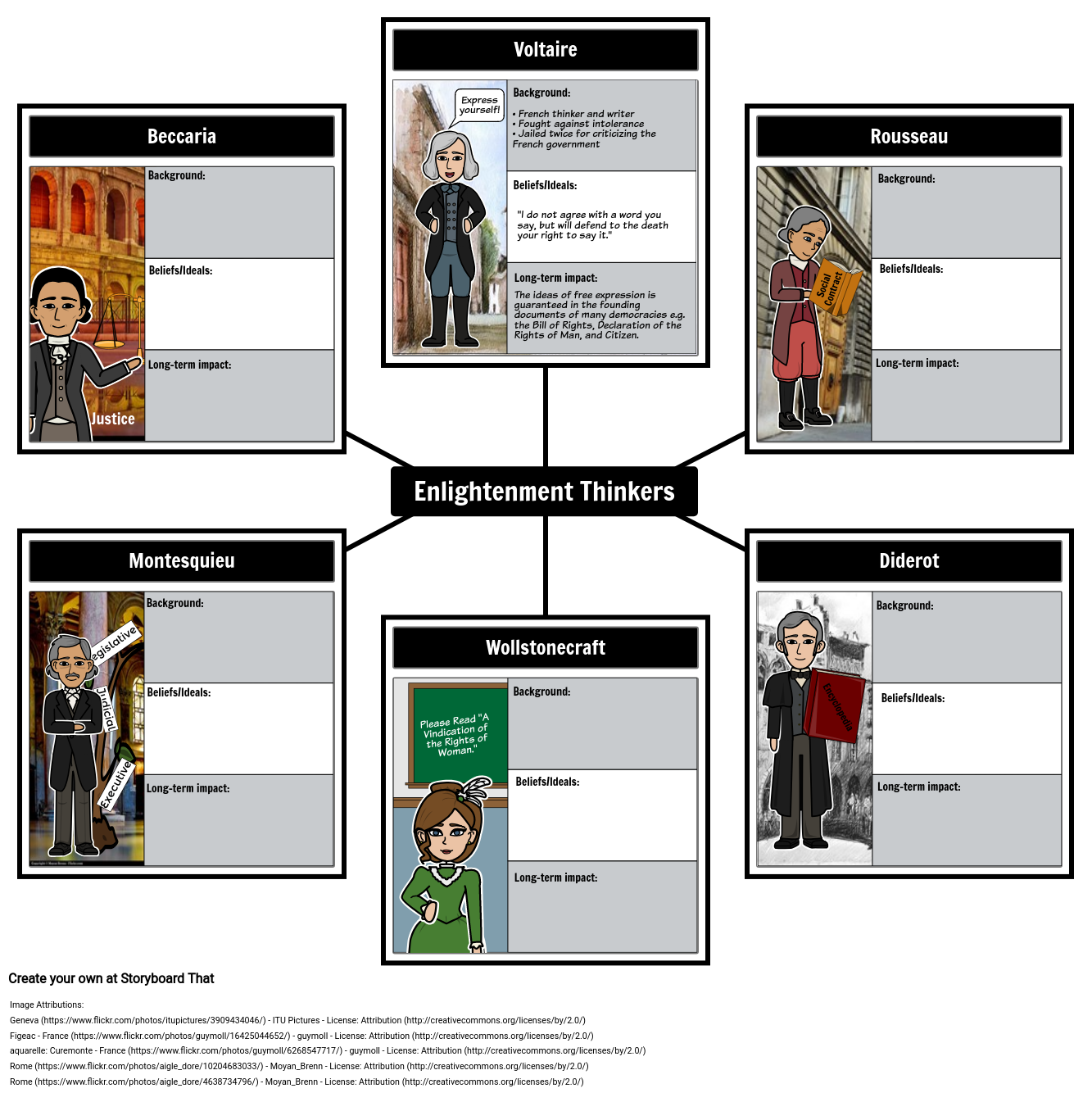
Enlightenment Thinkers Chart

Enlightenment Thinkers

Enlightment Thinkers by Victoria Pereira
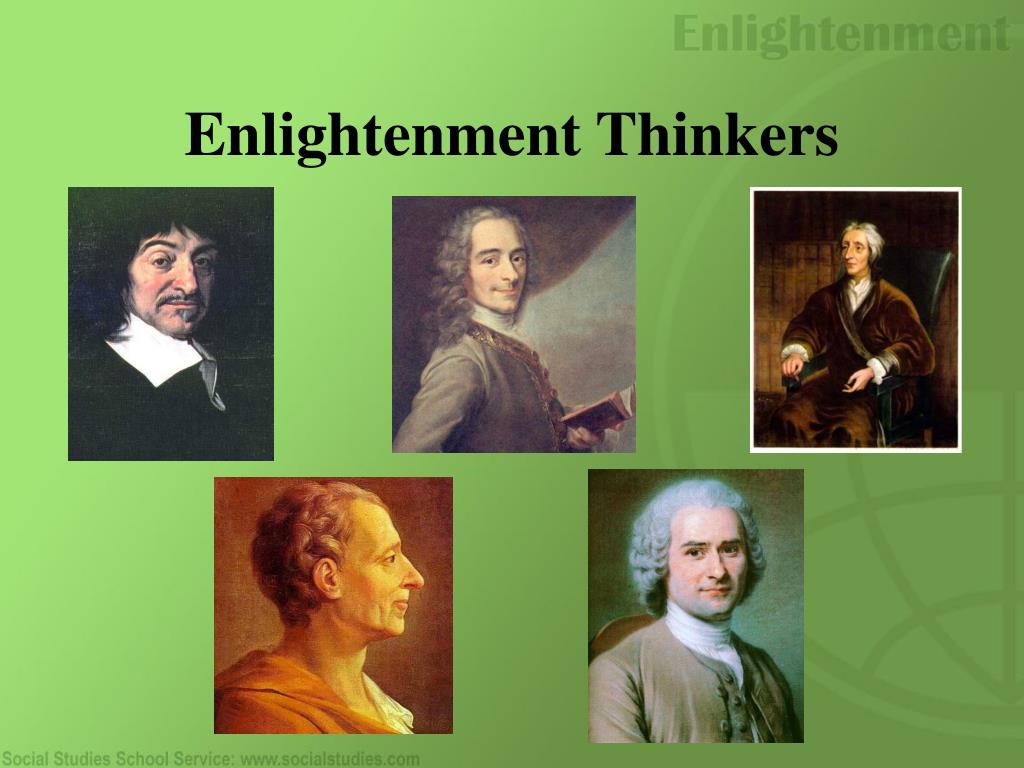
PPT The Enlightenment PowerPoint Presentation, free download ID3775016
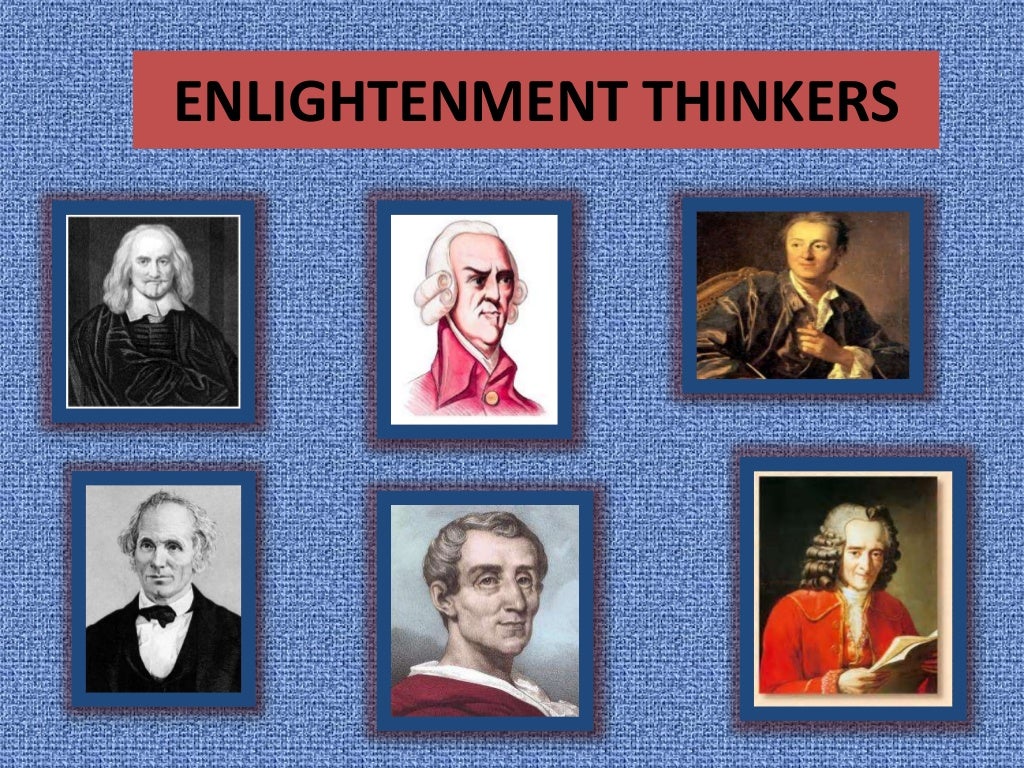
Enlightenment thinkers
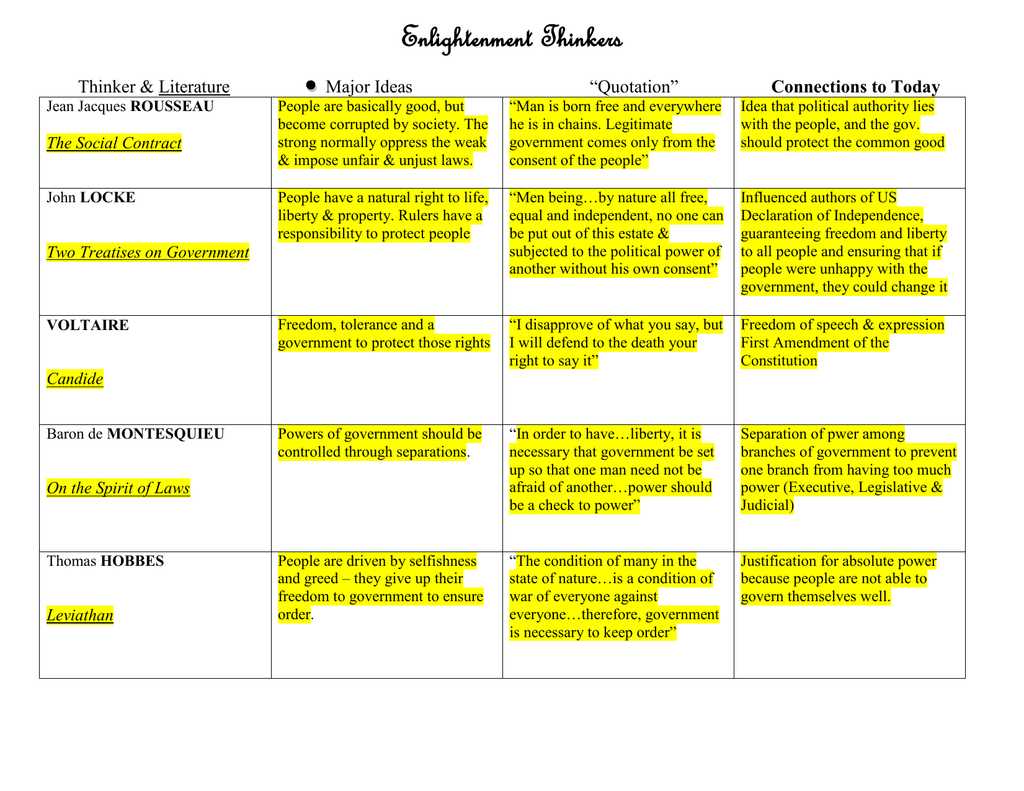
How Did Enlightenment Thinkers Approach the Study of Government

Prepare your students for their state Civics EOC test with this notes
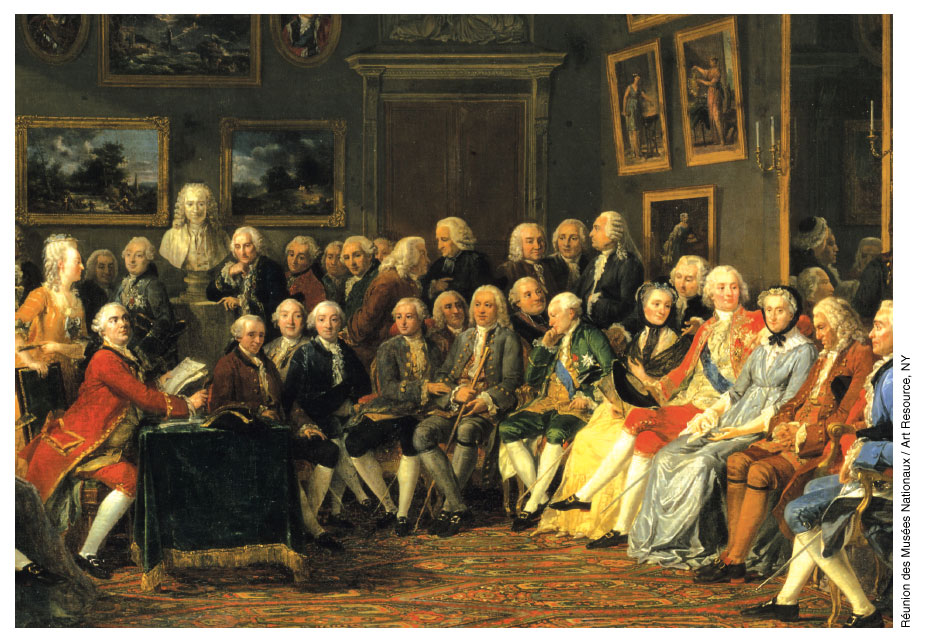
The Enlightenment Thinkers. Mountain View Mirror

PPT The Enlightenment PowerPoint Presentation, free download ID2801807

PPT The Enlightenment PowerPoint Presentation, free download ID2801807
They Said, People May Perceive Things Differently, But Through Science They Can All Come To The Same Objective Knowledge. Did Any Enlightenment Thinker Of Significance Conclude:
Web Enlightenment Thinkers Relied On Science And Observation, Using Empirical Methods And The Scientific Method To Question Traditional Beliefs And Recognize Patterns And Connections.
Web Enlightenment Writers Often Filtered Their Ideas About Colonialism Through Their Experiences With It, Past And Present.
Web What Views Did Enlightenment Thinkers Have About Progress?
Related Post: